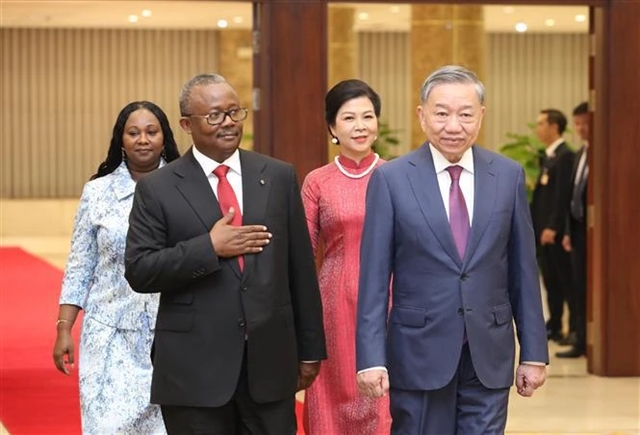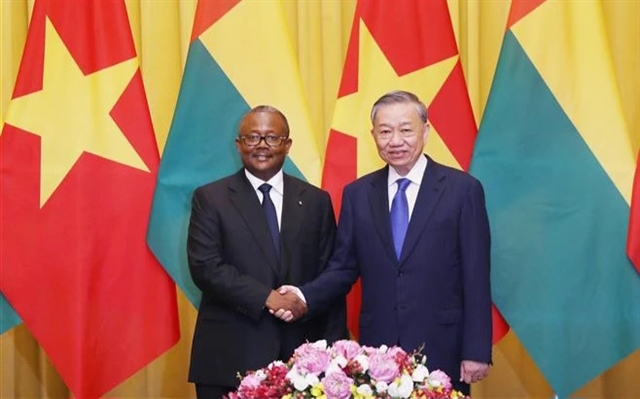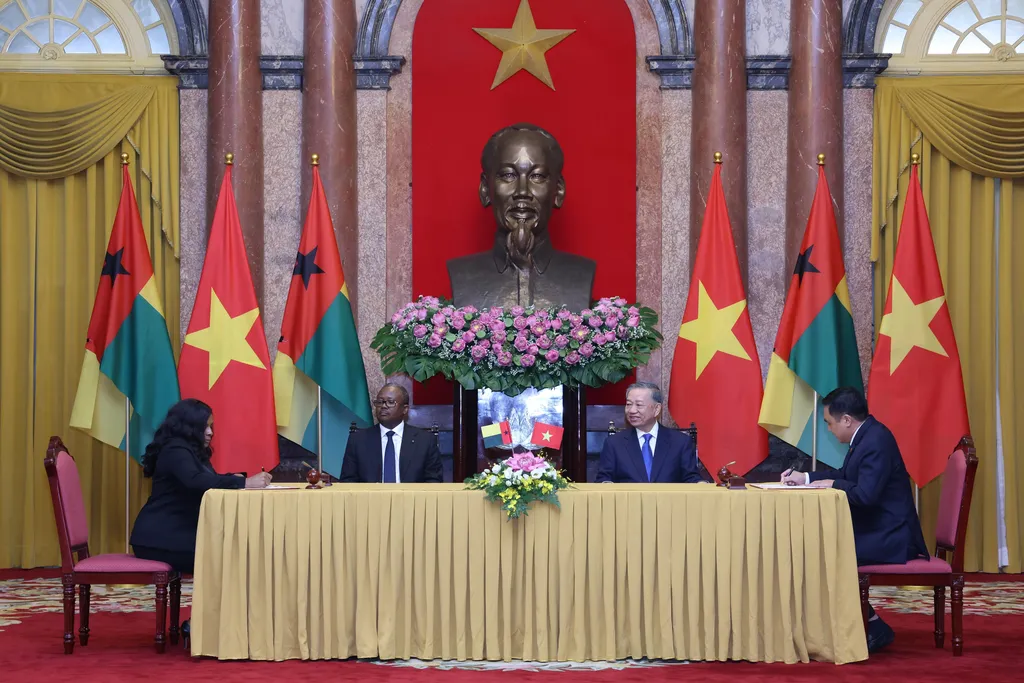 Politics & Law
Politics & Law

 |
| Party General Secretary and President Tô Lâm (R) and Guinea-Bissau President Umaro Sissoco Embaló. — VNA/VNS Photo |
HÀ NỘI — Party General Secretary and President Tô Lâm expressed confidence that the official visit by Guinea-Bissau President Umaro Sissoco Embaló, the first delegation exchange at the Head of State level between the two countries since the establishment of diplomatic ties in 1973, will be a success, bringing fresh momentum to the bilateral friendship and cooperation.
During the talks with the Guinea-Bissau President in Hà Nội on September 6, President Lâm commended the Government and people of Guinea-Bissau for their achievements in maintaining political stability, fostering national unity and reconciliation, and driving socio-economic development. He also acknowledged Guinea-Bissau's contributions to Africa’s overall progress.
President Embaló expressed admiration for Việt Nam's revolutionary cause, national construction, and development, noting that the country’s great leaders, such as President Hồ Chí Minh and General Võ Nguyên Giáp, have been a source of inspiration for national liberation movements in Guinea-Bissau and across Africa.
He shared that a secondary school in Guinea-Bissau has been named after President Hồ Chí Minh, emphasising Việt Nam's standing as a model for developing countries in Africa and particularly for Guinea-Bissau.
Guinea-Bissau follows a policy of expanding cooperation with Asian countries, with Việt Nam being identified as a top priority partner. President Embaló expressed determination to foster bilateral friendship for mutual benefit.
Both leaders expressed satisfaction with the positive outcomes of bilateral relations, especially as they celebrated the 50th anniversary of diplomatic ties last year.
They agreed to facilitate the exchange of delegations at all levels to enhance political trust and create momentum for further cooperation. A key initiative in this direction is the implementation of the Memorandum of Understanding (MoU) on establishing a political and diplomatic consultation mechanism between the two foreign ministries, which was signed during this visit.
In a significant move, President Embaló announced visa exemptions for holders of Vietnamese diplomatic and official passports and extended an invitation to President Lâm to visit Guinea-Bissau, which was graciously accepted.
 |
| Vietnamese Party General Secretary and President Tô Lâm and Guinea-Bissau President Umaro Sissoco Embaló witness the signing of an MoU on agricultural cooperation between the two ministries of agriculture and rural development. — VNA/VNS Photo |
President Embaló vowed to work closely with Việt Nam to strengthen economic, trade, and investment ties, with a focus on traditional products like cashew nuts. He highlighted the need for incentives to diversify exports and imports and facilitate business communities in exploring market opportunities.
As Việt Nam is Guinea-Bissau's third-largest trade partner, Embaló supported President Lâm’s proposal to expand cooperation in areas where Việt Nam excels and Guinea-Bissau has specific needs, such as agriculture, policy-making experience, development models, and management personnel training. Both sides agreed to negotiate and sign legal documents to formalise bilateral cooperation.
On global and regional issues of shared concern, the two leaders pledged mutual support at multilateral forums, especially within the United Nations, the Non-Aligned Movement, and the Group of 77 (G77). They also agreed to promote cooperation within regional organisations, such as ASEAN, the African Union (AU), and the Economic Community of West African States (ECOWAS), focusing on priority areas such as agriculture, education, healthcare, and digital transformation.
Regarding the East Sea (South China Sea) issue, the leaders shared a common view on the importance of ensuring security, safety, and freedom of navigation and overflight in the East Sea (South China Sea). They reiterated their support for the peaceful resolution of disputes in line with international law, including the 1982 United Nations Convention on the Law of the Sea (UNCLOS).
Following the talks, both leaders witnessed the signing of an MoU on establishing a political and diplomatic consultation mechanism between the two foreign ministries and another on agricultural cooperation between their respective ministries of agriculture and rural development. — VNS




